
Clivo di Scauro Rome, ancient street with picturesque arches.
Continuing along Clivo di Scauro gives the feeling of being anywhere other than Rome, it feels almost country like. The down side of this street is that you can't just daydream as you walk, to do so would increase the likelihood of being run down by the infrequent passing traffic. These drivers definitely believe they own the road.
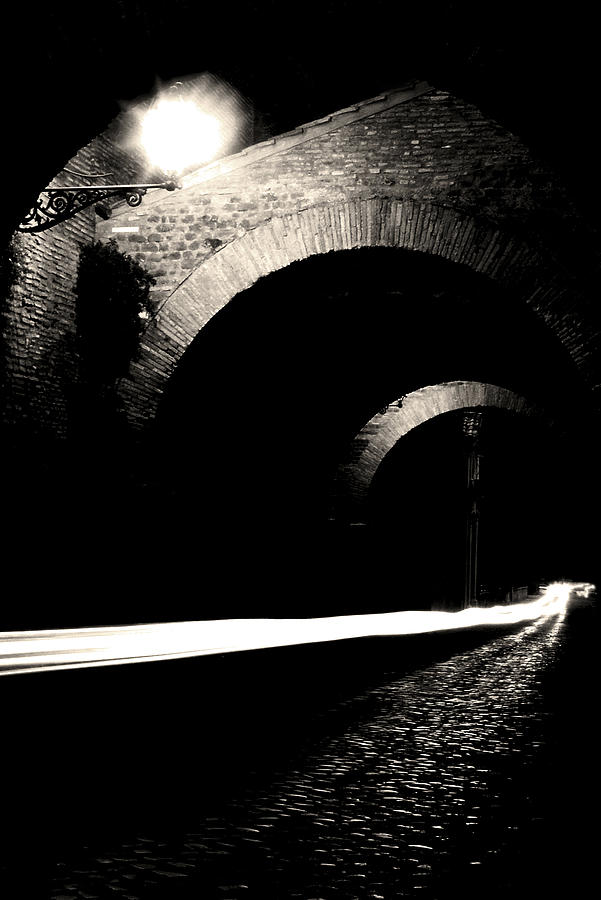
Clivo di Scauro Photograph by Fabrizio Troiani
The Caelian Hill of Rome (In Italian: il Celio; in Latin: Caelius) is one of the historical seven hills of Rome. Located between the Colosseum and the Baths of Caracalla, in Rome City center, it is a beautiful hill with many interesting attractions and churches. Despite this central location, the Caelian Hill is largely ignored by tourists.
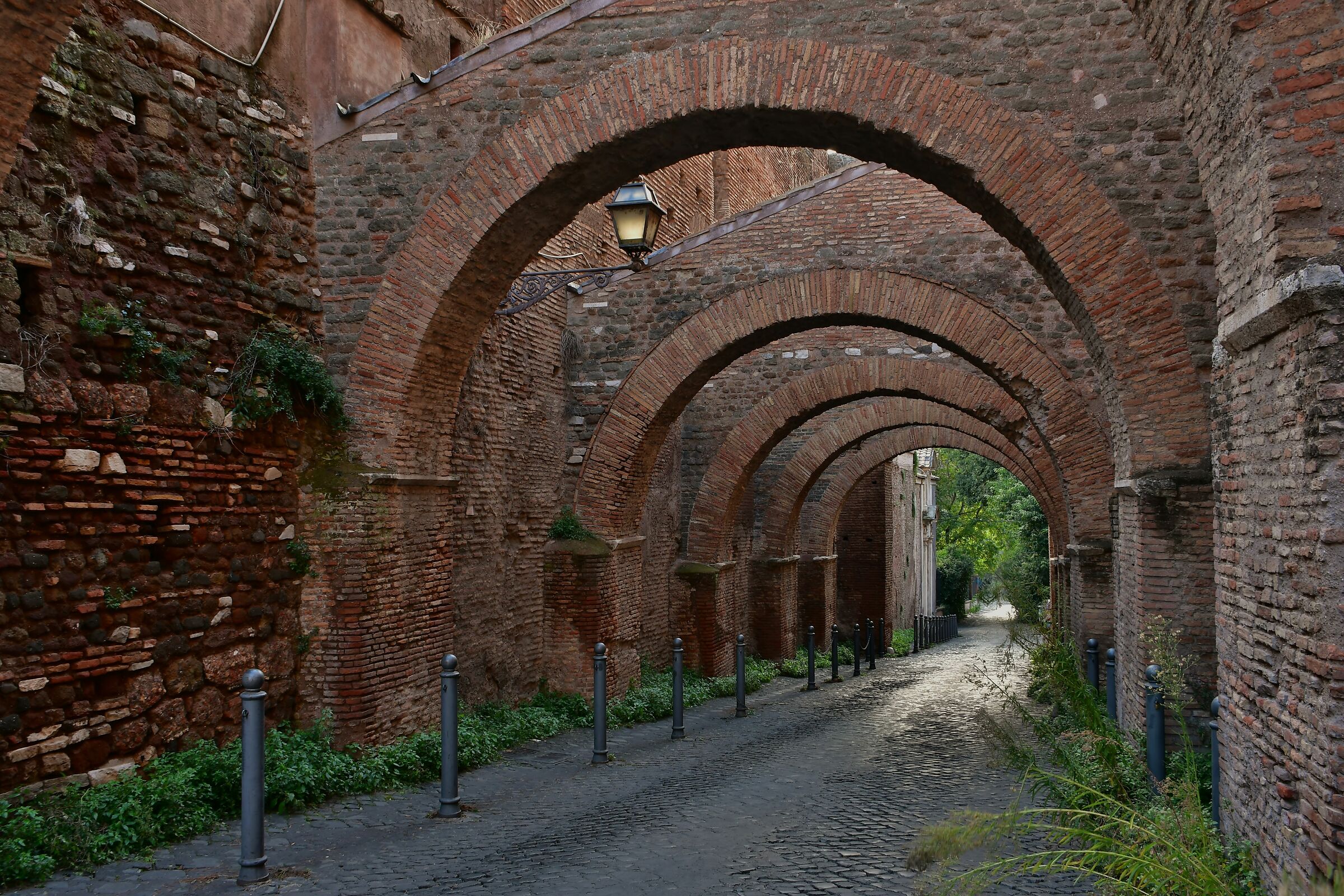
Clivo di Scauro JuzaPhoto
Visitors who enter the Roman Domus find themselves in the Portico on the Clivo di Scauro, the access road to the so-called "main Domus", a two-story villa where frescoes and decorations dating back to the 3rd century AD can be admired.

Roma Sparita Clivo di Scauro
Il clivus Scauri ("clivo di Scauro") era una strada della Roma antica che saliva dalla depressione tra Palatino e Celio lungo il lato est di quest'ultimo fino alla sua sommità, dove oggi è piazza della Navicella. Ancora oggi la strada ha mantenuto il nome antico, nel tratto iniziale.

Clivo di Scauro al Celio 1850 Torino, Rome, Mona Lisa, Antiques
Entry to the houses, which now lie beneath the Basilica dei SS Giovanni e Paolo al Celio, is on the Clivo di Scauro. Read more. Contact. Address. Clivo di Scauro. Get In Touch. 06 7045 4544. https://www.caseromane.it. Suggest an edit to this attraction. Lonely Planet's must-see attractions.

Clivo di Scauro, vicino al Parco del Celio, Roma.
Description. Winding their way along the southern slopes of the Caelian Hill, the Clivo di Scauro and the Via San Stefano Rotondo follow the same route as the Clivus Scauri, a medieval (and ancient) road that connected the Palatine Hill to the neighborhood of Saint John Lateran. It was one of two major roads leading to the Lateran area, which.

Clivo di Scauro fotografia stock. Immagine di italia 108114024
Giovanni e Paolo, today the Clivo di Scauro Clivus Suburanus. The Clivus Suburanus was the ancient road leading up from the Subura, behind the imperial fora between Oppius and Cispius. The lower part is identical with the modern Via in Selci, named from the Roman paving-stones (selci) which were visible until the middle of the 19th century.

Case Romane del Celio un viaggio straordinario nella storia
The Clivus Scauri was an ancient Roman road that originally branched off from the road that connected the Circus Maximus to the Colosseum along the depression between the Palatine and Caelian hills of Rome. It followed the east side of the latter, up to its summit, which is today known as Piazza della Navicella.
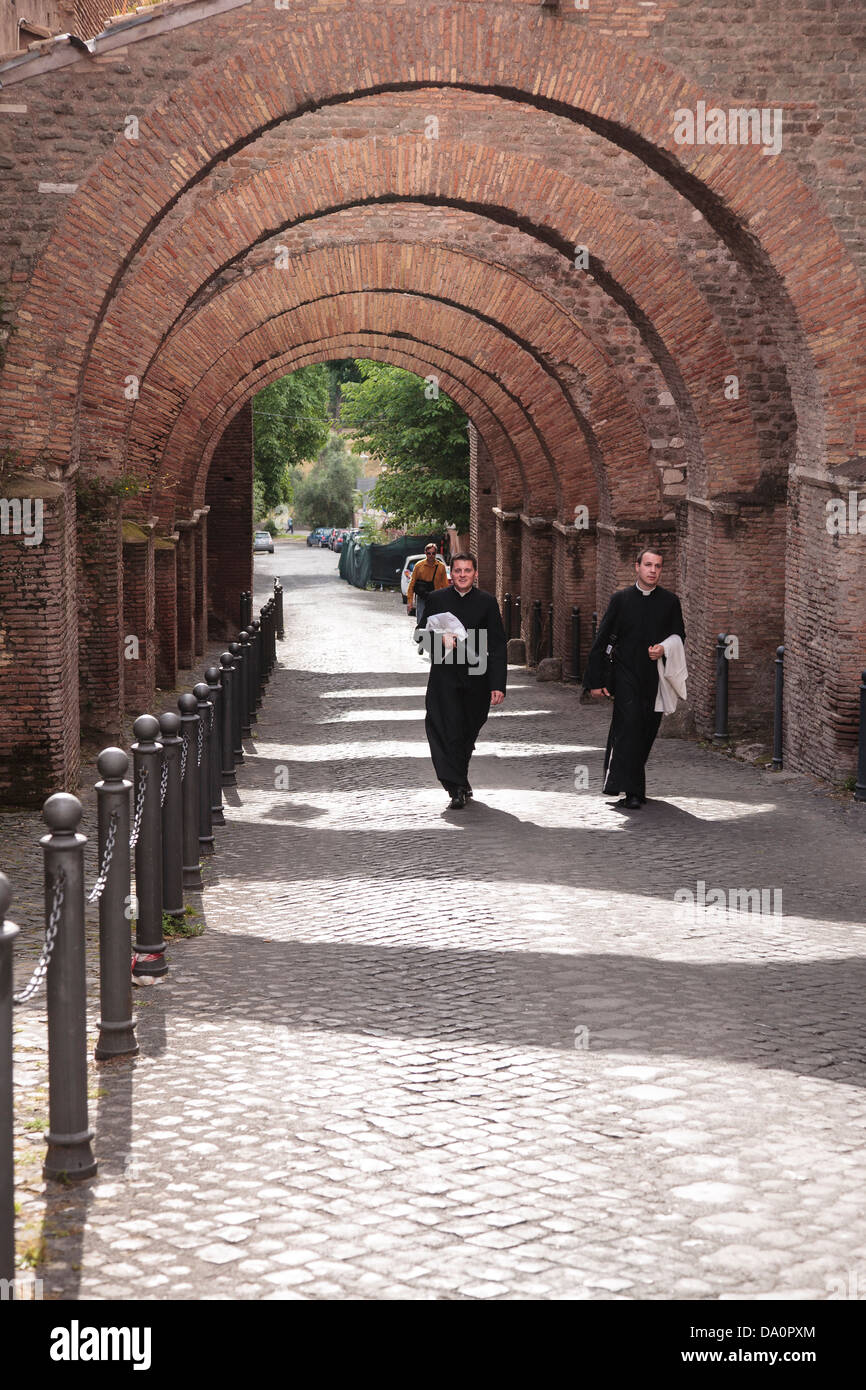
Two priests walking along clivodiscauro in Rome, Italy Stock Photo
Clivio di Scauro is a beautiful ancient Roman road between the Colosseum and the Circo Massimo. One end of the street is almost into the Palantine Hill and the opposite end leads into Via di San Paolo della Croce, which goes through the 10AD, Arch of Dolabella.

The Clivus Scauri Clivio Di Scauro, Old Roman Road on the Celio Hill in
Clivio di Scauro is a beautiful ancient Roman road between the Colosseum and the Circo Massimo. One end of the street is almost into the Palantine Hill and the opposite end leads into Via di San Paolo della Croce, which goes through the 10AD, Arch of Dolabella.
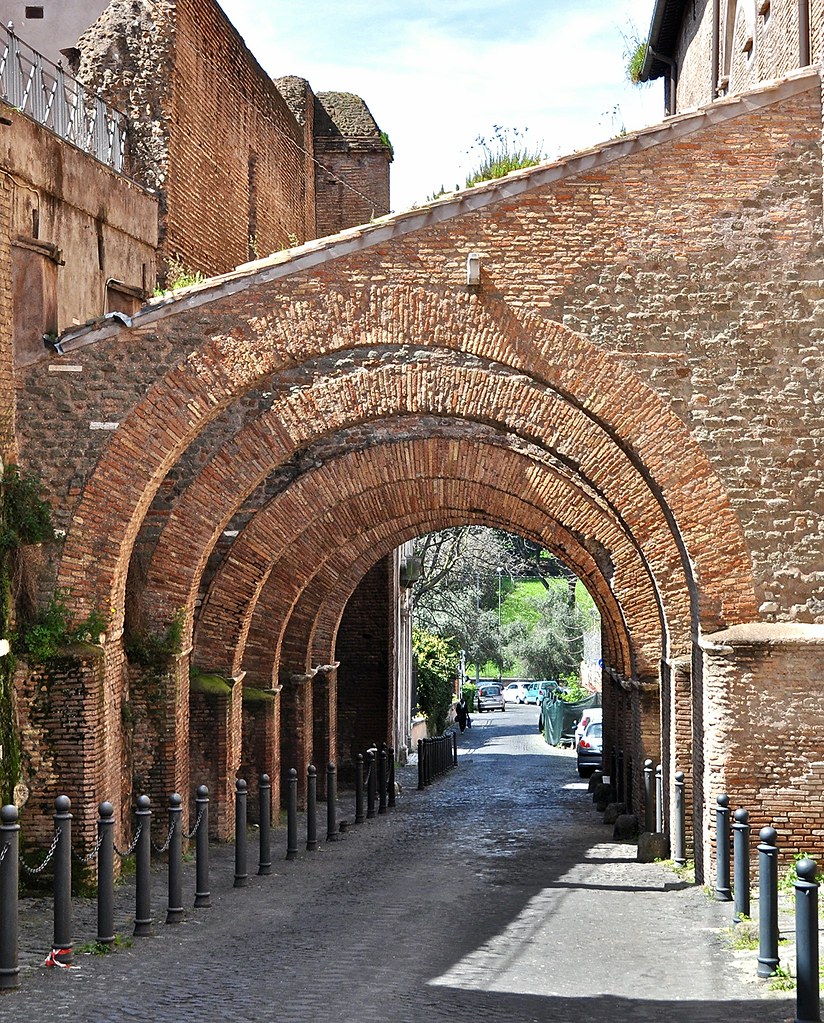
Clivo di Scauro Tunnel of 13th Century arches over the lan… Flickr
The most important attraction along the Clivo di Scauro is an archeological site known as the Roman Houses under the Celio Hill. These are located underneath the picturesque Santi Giovanni and Paolo Basilica, a popular church for Roman weddings. The most photogenic part of the street is crossed by a number of brick arches. It is likely that.
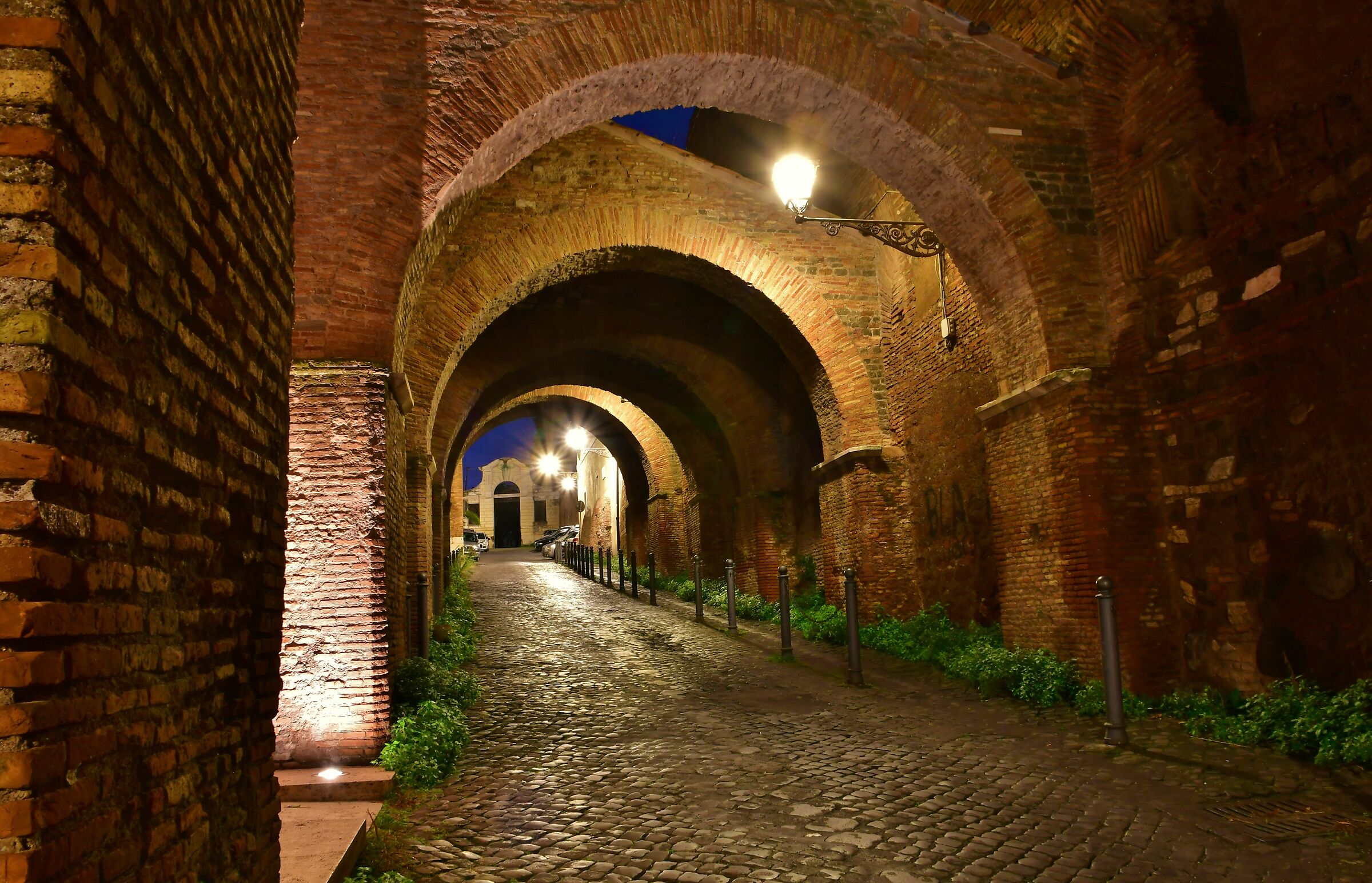
Notturno Clivo di Scauro JuzaPhoto
They were officers at the court of emperor Constantine (312 - 337 AD) who made Christianity legal in Rome. 24 years later, emperor Julian the Apostate (361 -363 AD) attempted to revert Rome back to paganism, and had John and Paul beheaded on the night of January 26th-27th, 361 AD after they refused to serve in a military campaign.

Clivo di Scauro Il clivus Scauri ("clivo di Scauro") era u… Flickr
Address: Clivo di Scauro - Rome (tel. +39 06 70454544 (Monday to Friday 10.00-13.00, for reservations). Opening hours: 10.00-13.00 and 15.00- 18.00. Closed: Tuesdays and wednesdays. Admission: 8 Euros (concessions 6 Euros, children younger than 12 free). Note that, during the Covid Crisis, the Green Pass is required. History Fresco
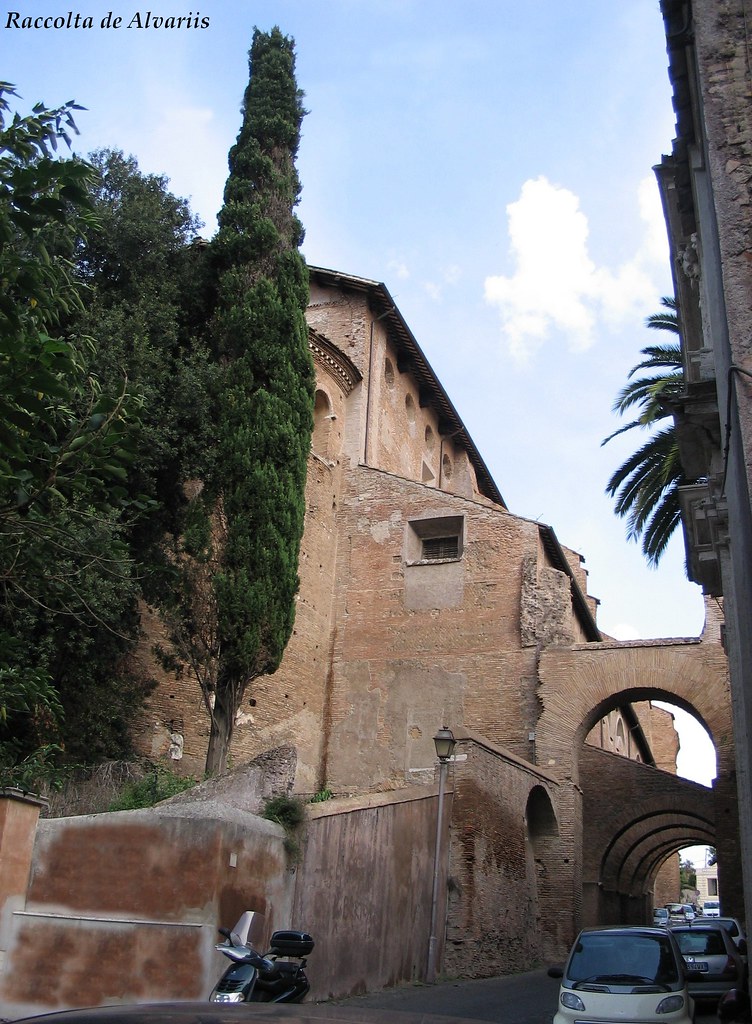
1854 2011 Clivo di Scauro Foto di Alvaro de Alvariis; Da W… Flickr
You then come to an ancient piece of road called Clivo di Scauro, which passes by the Basilica of the Saints Giovanni and Paolo. Basilica SS. Giovanni e Paolo. The Basilica of St. John and Paul is a popular wedding church. The basilica dates back to the 4th century. Under the basilica there are Roman houses and the martyrs John and Paul are.

The 11 Best Photo Spots in Rome Rome Private Guides Blog
The address of the houses is: Clivo di Scauro, 00186 Rome The closest tram station is tram n3 and the closest metro stop is Colosseo. The Roman Houses of Celio: what to expect from your visit The Roman Houses of Celio are a rather large site.

Roma Clivo di Scauro, by Luca Parravano Romantic Italy, Europe
Clivo di Scauri Winding their way along the southern slopes of the Caelian Hill, the Clivo di Scauro and the Via San Stefano Rotondo follow the same route as the Clivus Scauri, a medieval (and ancient) road that connected the Palatine Hill to the neighborhood of Saint John Lateran.